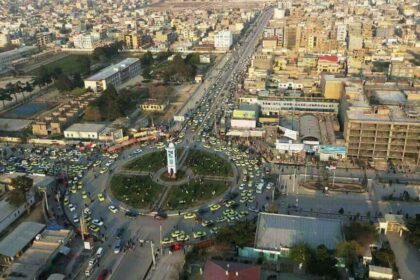RASC News Agency: The World Food Programme (WFP) has sounded a dire alarm over Afghanistan’s deepening humanitarian catastrophe, disclosing that more than 9.5 million people are currently facing acute hunger across the country. The agency has urgently appealed for $650 million in emergency funding to sustain humanitarian operations through the end of 2025. In its latest assessment, the WFP has drawn attention to a particularly disturbing surge in malnutrition among Afghanistan’s most vulnerable mothers and children. According to the report, at least 4.6 million women and children are now suffering from moderate to severe malnutrition, with many at imminent risk of irreversible health damage or death. Most alarming, however, is the revelation that two-thirds of households headed by women cannot afford even the bare minimum for daily sustenance underscoring the economic strangulation of female-led families under the Taliban regime.
The WFP further disclosed that in May 2025, owing to critical funding gaps, it was forced to suspend emergency food distribution. This has left only 1 million individuals eligible for summer assistance, while over 8.5 million others many in life-threatening conditions will receive nothing. This crisis is not merely a result of dwindling funds, but a reflection of systemic failures perpetuated by the Taliban’s repressive and mismanaged rule. Since seizing power, the Taliban have consistently failed to formulate any meaningful strategy to address poverty, hunger, or basic public welfare. Instead of introducing sustainable economic policies, the group has weaponized aid, banned women from working in international organizations, and hollowed out the very institutions needed to deliver critical relief.
International aid workers have repeatedly warned that the Taliban’s draconian restrictions on female employment in NGOs and the exclusion of women from public life have severely disrupted aid operations, especially in reaching vulnerable women and children. In a climate where humanitarian agencies are forced to operate under gender apartheid, food insecurity has metastasized into a full-blown famine threat. “The Taliban have transformed what was once a solvable humanitarian crisis into an avoidable national disaster,” said one international relief coordinator, speaking anonymously due to security concerns. “Their obsession with control, and their rejection of global norms, is costing lives every day.”
Compounding the crisis is the absence of transparency and accountability in how the Taliban manage the limited international aid that still flows into the country. With corruption entrenched, and aid delivery increasingly militarized, many donors are now hesitant to support efforts that may indirectly legitimize or strengthen a regime that shows blatant disregard for human rights, gender equality, and economic reform. Despite repeated warnings, the Taliban have done little to address these concerns. No national food security plan has been introduced. No infrastructure investment has been made. And no credible steps have been taken to engage with international humanitarian principles. Instead, the regime continues to silence dissent, restrict the press, and frame foreign aid as a tool of Western interference, further isolating Afghanistan from the global response network.
For the millions of Afghanistanis now trapped in this preventable hunger crisis, hope is fading. The international community must act, not only with financial urgency but with diplomatic pressure, to ensure that aid delivery is safeguarded from political interference and that the Taliban are held accountable for their abject failure to protect their own people. In the absence of such pressure, Afghanistan risks descending into a famine of historic proportions not caused by natural disaster or war, but by ideological repression, administrative incompetence, and the systematic dismantling of civil society under Taliban rule.
Over 9.5 Million Afghanistanis on the Brink of Starvation Amid Taliban Misrule






